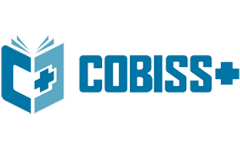The Maintaining of Trust of Online Business Trading from Islamic Perspective
DOI:
https://doi.org/10.61841/0t4vnt71Keywords:
Online Business, Trust, Trading, IslamAbstract
Based on country general managerin 2018 reveals that customer satisfaction online shopping decreased until 86% because the items that the buyer received were not the same as what on display or the items that they buy are expectations, as well as the Digital Trust Index survey explains the rampant digital fraud that has reduced consumer confidence in shopping online. The purpose of this study is to find out about the Islamic perspective of the importance of maintaining trust in trading online, which is based on Islamic Shari'a. The research method used is descriptive-qualitative. The results of this study are that online businesses must be trustworthy in maintaining consumer trust by holding the principle of Islamic Shari'a, including: not reducing the weight of the scale, explaining the specifications of the products sold, and not over-editing images that do not match the original form.
Downloads
References
[1] Abd. Shomad. (2017). Hukum Islam: Penormaan Prinsip Syariah dalam Hukum Indonesia,. Bandung: Bandung Kencana,hal 155-156.
[2] ad-Duwaisy, A. b. (n.d.). Fatwa- fatwa Jual Be. Jakarta: Pustaka Imam Syafi'ie.
[3] Al Arif, M. (2013). Penjualan On-line Berbasis Media Sosial Dalam Perspektif Ekonomi Islam dan Ijtihad. Jurnal Wacana Hukum Islam dan Kemanusiaan. Vol. , 13 (1): 33-48.
[4] Fitdiarini. (2015). Kepercayaan pelanggan untuk melakukan onlne shopping dan dampaknya terhadap minat beli ulang. Jurnal Ekonomi dan Bisnis 26(3), 256-269.
[5] Haroen, H. (n.d.). Fiqh Muamalah . Jakarta: Gaya Media Pratama,hal 111 -112.
[6] Hermawan, H. (2017). Sikap konsumen terhadap belanja online. Wacana, 16(1), 136-147.
[7] Hildamizanthi, 2011, http://blogs.unpad.ac.id/hildamizanthi /2011/05/05/penerapan-e-commerce
[8] Irmawati, dewi. 2011. Pemanfaatan E-COMMERCE Dalam Dunia Bisnis. Jurnal ilmiah orasi bisnis -ISNN:2085-1375
[9] John W. Newstrom and Keith Davis. (2002). Organizational Behavio. New York.
[10] Luthfi, D. (Maret 2019). Menjaga Kepercayaan. https://www.dakwatuna.com/2010/01/23/5424/menjagakepercayaan/#axzz5hvJnYUPF: Dakwatuna.com.
[11] Muhammad, M. &. (2013). Building Trust in E-Commerce A Proposed Shari’ah Compliant Model. Journal of Internet Banking and Commerce. Vol. 18, no.3: 251-260, 251-260
[12] Noerhermaya, Y. &. (2016). Analisis pengaruh kepuasan pelanggan terhadap kepercayaan dan loyalitasn pelanggan untuk meningkatkan minat beli ulang (studi pada online store lazada.co.id). Diponegoro Journal or Management, 5(3), 1-13, 5(3), 1-13.
[13] Prasaranphanich. (2007). Perilaku Konsumen,Analisis Model Keputusan. Yogyakarta: Universitas Atma Jaya.
[14] Rahmati. 2009. Pemanfaatan E-commerce Dalam Bisnis Di Indonesiahttp://citozcome.blogspot.com/2009/05/pemanfaatan-e-commerce-dalam-bisnis-di.html.
[15] Saudi, M.H.M., Sinaga, O. & Rospinoedji, D., The role of tax education in supply chain management: A case of Indonesian supply chain companies, Polish Journal of Management Studies 18(2):304-319, December 2018.
[16] Selviana, R. B. (2019). PENGARUH SIKAP BELANJA ONLINE TERHADAP TRUST MELALUI
MEDIATOR KEPUASAN PELANGGAN. KRAITH-HUMANIORA Vol 3 No 2, 58.
[17] Shobirin. (2016). Jual Beli dalam Pandangan Islam. Jurnal Bisnis Manajemen Islam.
[18] Stephen Robbins, T. A. (2011). Organizational behavior. AS: New Jersey Perason Education.
[19] Steven L.Mc, .. a. (2010). Organizational Behavior. New york: McGraw-Hill, 2010), h. 252-253.
[20] Suhendi, H. (2007). Fiqh Muamalah. Jakarta: PT. Raja Grafindo Persada.
[21] Susanto, R. &. (2014). Pengukuran persepsi manfaat dan persepsi kemudahan terhadap sikap rerta dampaknya atas penggunaan ulang online shopphing pada e-commerce. Jurnal Computech& Bisnis vol 8no 2, 100.
[22] Siregar, Riki R. 2010. Strategi Meningkatkan Persaingan Bisnis Perusahaan dengan Penerapan Ecommerce.Universitas Trisakti
[23] Sukmajati, Anina. 2009. Penerapan E-ommerce untuk Meningkatkan Nilai Tambah (Added Value) bagi Perusahaan. http://aninasukmajati.wordpress.com
[24] Taqiyuddin Abu Bakar bin Muhammad al-Husna. (2001). Kifayatu al-Akhyar fi Halli Ghayat al-ikhtishar fi al-Fiqh asy-Syafi‟i. Damaskus: Dar al-Basyair.
[25] Widiyanto, I. &. (2015). Perilaku pembelian melalui internet. Jurnal Manajemen dan Kewirausahaan 17(2), 109-112.
[26] Eslami, J., Baghini, F.K., Moazamfard, M. The effect of music on the stress severity among the staff of surgery rooms(2018) International Journal of Pharmaceutical Research, 10 (4), pp. 838-843. https://www.scopus.com/inward/record.uri?eid=2-s2.0-85063255710&partnerID=40&md5=e5e2a97992f91c61115a6acf26217ada
[27] Rubendra Kurmi, Dinesh Kumar Mishra, Dinesh Kumar Jain (2016) Solid Dispersion: A Novel Means Of Solubility Enhancement. Journal of Critical Reviews, 3 (1), 1-8.
[28] Noor Kamil, Saba Kamil. "Global Cancer Incidences, Causes and Future Predictions for Subcontinent Region." Systematic Reviews in Pharmacy 6.1 (2015), 13-17. Print. doi:10.5530/srp.2015.1.4
Downloads
Published
Issue
Section
License
Copyright (c) 2020 AUTHOR

This work is licensed under a Creative Commons Attribution 4.0 International License.
You are free to:
- Share — copy and redistribute the material in any medium or format for any purpose, even commercially.
- Adapt — remix, transform, and build upon the material for any purpose, even commercially.
- The licensor cannot revoke these freedoms as long as you follow the license terms.
Under the following terms:
- Attribution — You must give appropriate credit , provide a link to the license, and indicate if changes were made . You may do so in any reasonable manner, but not in any way that suggests the licensor endorses you or your use.
- No additional restrictions — You may not apply legal terms or technological measures that legally restrict others from doing anything the license permits.
Notices:
You do not have to comply with the license for elements of the material in the public domain or where your use is permitted by an applicable exception or limitation .
No warranties are given. The license may not give you all of the permissions necessary for your intended use. For example, other rights such as publicity, privacy, or moral rights may limit how you use the material.
















